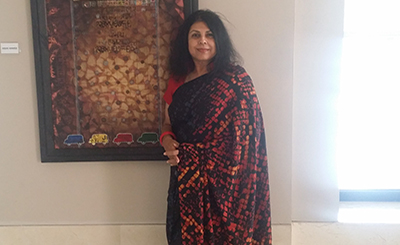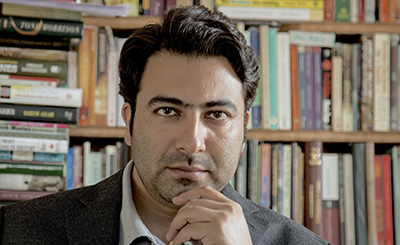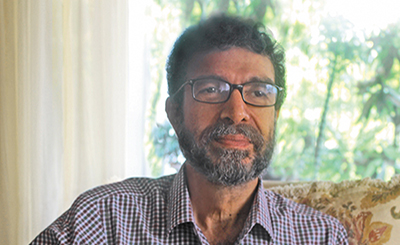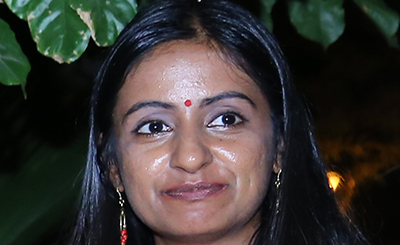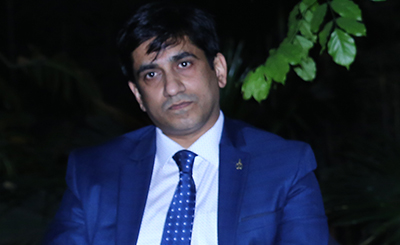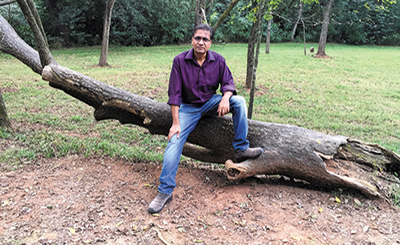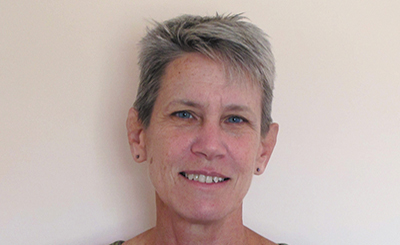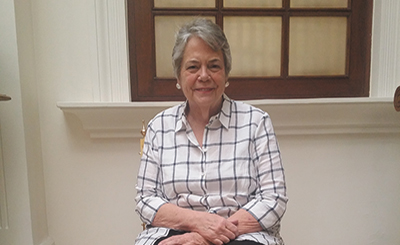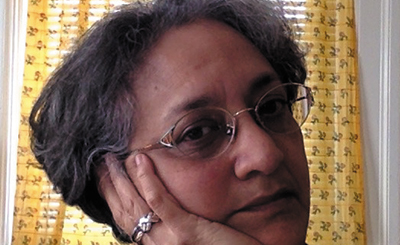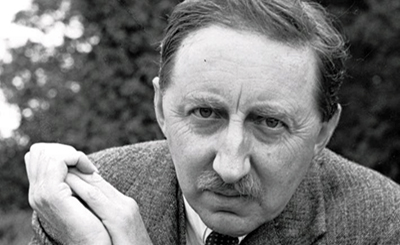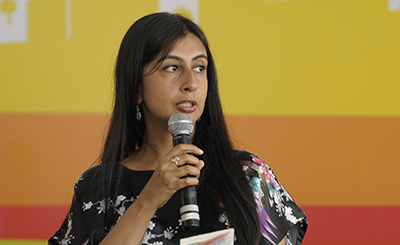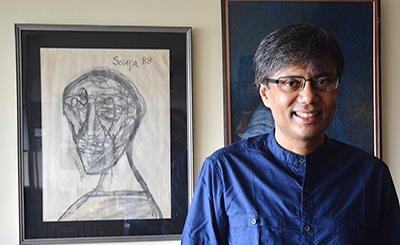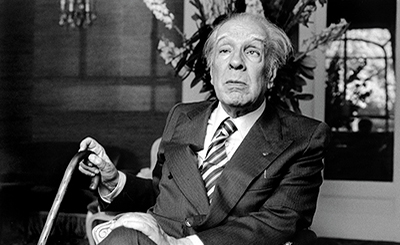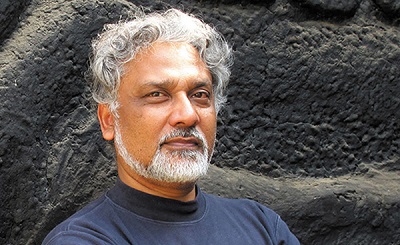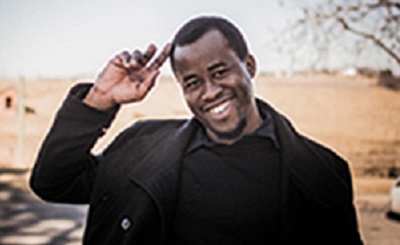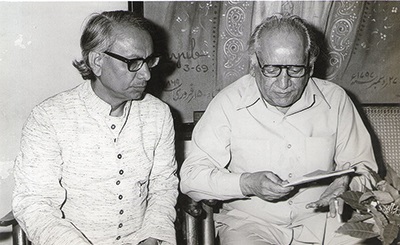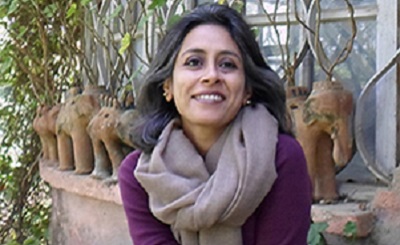The Byword/INTERVIEW/PROFILE
Sandhya Mridul on how she is reclaiming her soul and her truth in her debut poetry collection, ‘Untamed’
In her first collection of poetry, Untamed, actor Sandhya Mridul writes what it means to be a woman who finally stopped shrinking.
Read more >>The Perumal Murugan interview: ‘Periyar ignited my awareness of the insidious caste system’
Perumal Murugan’s Pyre, translated by Aniruddhan Vasudevan and longlisted for the 2022 International Booker Prize, is a searing indictment of the oppressive caste system and a profound meditation on the transformative power of love and sacrifice.
Read more >>Amitava Kumar: ‘Good writing grows out of serious noticing’
Amitava Kumar talks about how so much of art is just an accident how he, as a writer-artist, recorded the contradictory realities of the world around him during the pandemic
Read more >>Anjana Menon: ‘Onam in a Nightie is about the culture, values and community spirit of Keralites’
The book opens a window into what makes Malayalis different
Read more >>Priya Hajela: ‘Ladies’ Tailor is a story of rebuilding life in the tumultuous backdrop of Partition’
‘There is a lot written about Partition proper but not as much about what happened a few years after — the remaking of lives, the uprooted replanted and overcoming the trauma of loss’
Read more >>Jerry Pinto: ‘All language is a patchwork quilt, made out of history, stuffed with borrowed feathers’
The author of Em and the Big Hoom (Aleph) on translating Swadesh Deepak’s memoir, I Have Not Seen Mandu (Speaking Tiger Books)
Read more >>Anees Salim: ‘Surrounded by people, we mimic normalcy. In private, we are all oddballs’
The author on his fascination with kings, especially the fallen ones, that served as the genesis for his novel, The Odd Book of Baby Names, and the nine progenies of a dying king who feel betrayed by their father
Read more >>Simran Dhir: ‘In today’s Delhi, pragmatism is important to balance out idealism’
I love the fact that Delhi is a really old city; that there are cities within cities here, and at any turn you could come up against beautiful old monuments that now form part of the city in many cases.
Read more >>Shivani Sibal: ‘The act of writing makes you confront yourself’
Sikand House in Delhi, where the novel’s two protagonists grow up, is a metaphor for India, and the events in their lives symbolise the change around us.
Read more >>Krupa Ge on her debut novel, What We Know About Her, an inquiry into the society’s treatment of women
The protagonist, Yamuna, who has inherited the rebellious streak and the brooding spirit of her foremothers, is hell bent on inheriting an ancestral home from her grandfather but fails to notice that the stench of the women wronged over generations still lingers in that house
Read more >>Ritu Menon on the Life and Times of Zohra Segal
Menon’s Zohra! A Biography in Four Acts locates her life and work in the backdrop of the history of arts in India and abroad spanning a century
Read more >>Nidhie Sharma: ‘I am drawn to inner battles more because they are harder to fight’
The author talks about her second book, Invictus, which recounts an incident from her childhood when she, along with five others, was stranded in a jungle in Tawang at the Indo-China border
Read more >>Sonal Kohli on her short stories about the quiet lives of ordinary people
‘Indian Writing in English opened a whole new world to me, a world that was strikingly familiar and thus alluring’
Read more >>‘Literature not addressing issues like mob lynching at all’: Chandan Pandey, author of Legal Fiction
In his Kafkaesque new novel, translated from Hindi, Pandey shows us the true picture of contemporary India, where the right-wing narratives like ‘love jihad’, designed to foster hatred towards Muslims, have reached a fever pitch
Read more >>Bevinda Collaço on why her book, I’m Old, I’m Wise & I Know My Sh*t, is an essential and handy reckoner for both men and women
The book by the former journalist offers an irreverent take on many facets of a woman’s life
Read more >>Anuradha Roy: ‘Novels start as ideas, images, moments of finding connections’
Anuradha Roy’s evocative fifth novel, The Earthspinner (Hachette India), is pivoted around the evisceration of freedom and civil liberties, a familiar phenomenon in the New India
Read more >>Anindita Ghose: ‘I was interested in exploring how much of women’s identities are defined by the men in their lives’
The author on her debut novel, The Illuminated, that is centred on powerful themes, such as women searching for their identities amidst the rising tide of religious fundamentalism in India
Read more >>‘I’m the pariah of literature in India, thank God!’: CP Surendran on his new novel and the many-shaded rejections
Poet and novelist CP Surendran’s fourth novel, One Love and the Many Lives of Osip B (Niyogi Books), is a novel that assumes the reader’s intelligence.
Read more >>The Gopi Chand Narang Interview: ‘Mir, a master of style and lyricism, created magic in his poetry’
‘A poet of countless delights’, Mir wrote simple words, enriched by innovative metaphors and similes. His simplicity had deep structure and dense meaning
Read more >>Rahul Singh and Niloufer Bilimoria on Khushwant Singh Literature Festival
Even though KSLF is organised entirely by volunteers, Khushwant Singh’s son, Rahul Singh, and his partner, Niloufer Bilimoria, who is the director of the festival, have been the moving spirits behind it
Read more >>Sahar Mustafah: ‘The yearning for stories that reflect my lived experiences informs my writing’
The Palestinian-American writer on her first novel, The Beauty of Your Face, in which she grapples with the horrors of domestic terrorism and growing up as an immigrant
Read more >>Devashish Makhija: ‘In my stories, I strive to hold up a mirror to ourselves’
The author, filmmaker and screenwriter on his first novel, Oonga, set against the backdrop of the conflict between the Adivasis, the Naxalites and the combined might of a rapacious mining company and the CRPF, controlled and directed by the State
Read more >>Jane Borges: ‘Bombay Balchão is as much about people as it is about a place’
The novelist and journalist on her debut novel, Bombay Balchão, how it defies the stereotypical ethnography of Christians and why writing a historical novel or a culturally-pivoted book may be exhaustive as a writer
Read more >>The Gulzar Interview: Poetry in Notion
Poetry permeates whatever medium Gulzar chooses. His latest offering, A Poem A Day, in which he has selected and translated 365 poems by 279 poets from 34 Indian languages, sketches the landscape of the nation — across the decades since Independence — through poetry
Read more >>The Shamsur Rahman Faruqi Interview: Part II
The second segment of a two-part interview with the veteran Urdu critic, writer, poet and theorist, who passed away on December 25. In this interview, he looks back on his life and times, and literature
Read more >>Om Swami: The Monk Who Was Once A Tech Tycoon
The disarming monk talks about his books, new projects, encouraging new writers, and how chess can teach us a thing or two about life
Read more >>Arun Maira: ‘People thought the whole point of an enterprise was to make profits’
In his new book, The Learning Factory, Arun Maira credits values, standards and people-centric operations for the enviable organisation Tata has come to be
Read more >>Annie Zaidi: ‘Language is deployed as a tool for furthering imbalances that serve elites’
The winner of the Tata Literature Live Book of the Year Award (Fiction) for Prelude to A Riot talks about the novel, which offers multiple perspectives of rising communal tension, chest-thumping nationalism, and mass polarisation through its nuanced characters, as well as her memoir — Bread, Cement, Cactus: A Memoir of Belonging and Dislocation — in which she explores language as a site of belonging
Read more >>Birth and death in the time of the pandemic: Emma Donoghue on her novel set during 1918 Spanish flu
Irish-Canadian writer Emma Donoghue tells the story of three women healthcare workers in a cramped maternity ward at an under-staffed hospital in Ireland, in her 13th novel, The Pull of the Stars
Read more >>‘Kashmir is Kafkaesque version of Arabian Nights... So many stories of horror and pain to be told’
Kashmiri writer and poet Shabir Ahmad Mir on his debut novel, The Plague Upon Us (Hachette), which tells the story of love and loss, friendship and betrayal, laced with the horrors of the war in Kashmir
Read more >>Shokoofeh Azar: ‘I write magic realism on the basis of facts. To me, a fact can be a dream or an emotion’
The Iranian-Australian writer, who has been nominated for the 2020 Booker International Prize, on her novel The Enlightenment of the Greengage Tree, which tells the story of the suffering of an intellectual family in Iran in the wake of the Islamic revolution
Read more >>Gabriela Cabezon Camara: ‘It’s important for us to be able to imagine other possible worlds’
Argentine writer Gabriela Cabezón Cámara on her novel, The Adventures Of China Iron, the celebration of the colour and movement of the living world, the open road, love and sex, and the dream of lasting freedom
Read more >>Daniel Kehlmann: ‘I am interested in exploring what a strange, distant country our past can be’
The German-Austrian author, 45, talks about how Tyll, the protagonist of his Booker International Prize-shortlisted novel, became a symbol of the dark side of art to him, the fact that “art can thrive in dark times and that catastrophic times are actually the times to make good art.
Read more >>Fernanda Melchor: ‘The crisis and desperation of Mexico found their way to Hurricane Season’
One of the most exciting Mexican writers on her Booker International shortlisted novel — the story of a woman killed by her lover — which dissects violence, femicide, homophobia and misogyny in rural Mexico
Read more >>Avni Doshi: We make sense of the world in retrospect
The 37-year-old author of Burnt Sugar (Hamish Hamilton, 2020), her debut novel which has been longlisted for the Booker Prize, on the interconnectedness between motherhood and madness, why she finds writing in the first person fascinating, getting lost in the writing process and how the realisation that memory could be rewritten and imbibed has shaped her reading of literature
Read more >>Those Who Left and Those Who Stayed: Saleem Kidwai on the Pangs of Partition in Qurratulain Hyder’s works
The translator of Qurratulain Hyder’s second novel, Ship of Sorrows, on how Partition is a recurring theme in her fiction — from her first novel Mere Bhi Sanam Khane (1954) to her last, Chandni Begum (1989)
Read more >>Shehan Karunatilaka: Laughter in the Dark
Chats with the Dead, Karunatilaka’s second novel which is set during the peak of Sri Lankan civil war, imagines what island nation’s dead would say if they could be heard
Read more >>Saikat Majumdar: Scent and Sensibility
The novelist and critic on his third novel that explores the mesmeric power of religion and the sensory, amoral nature of polytheistic Hinduism, being an ‘ethnographer’ of memory, seeing present as a muddled continuum of past and future, and his fascination with the non-modern
Read more >>Alexander McCall Smith: Portraits of Unknown People
The best-selling author of the No.1 Ladies Detective Agency series talks about how he veered off to writing, how his famous series was inspired by RK Narayan, how he was exposed to the language early on in his life, how poetry teaches movement and the possibilities of a language, the perils and pleasures of writing about other cultures, his panache for writing about kindness, and much more
Read more >>2019 DSC Prize: Inside the Minds of Jurors
The five-member jury for the 2019 DSC Prize for South Asian Literature comprised men of letters from across South Asia — India, Sri Lanka, Nepal and Bangladesh. The jurors share how they selected the winner from 90 books
Read more >>‘Nepal Litfest fosters pluralities of thoughts’
Ajit Baral, Festival Director of Nepal Literature Festival, says the country is uniquely placed to be a neutral space for conducting meaningful dialogue to promote plurality, foster tolerance and generate empathy for all of South Asia
Read more >>Amitabha Bagchi: Skins of Yarns
The Delhi-based author on his fourth novel about a Hindi novelist who tells the story of India in the early 20th century, a story which speaks to our contemporary fractured realities
Read more >>Jamil Jan Kochai: An Afghan Odyssey
In his debut novel, the Pakistan-born author broadens and complicates the way we understand life in Afghanistan
Read more >>Sadia Abbas: Mapping Misogyny
In her debut novel, Abbas explores how a woman could live with misogynistic values, and with the men in their family bloated with ‘unearned sense of superiority and unthinking everyday cruelty’
Read more >>Chigozie Obioma: The Metaphysics of Being
Booker-shortlisted author Chigozie Obioma on his second novel, An Orchestra of Minorities, narrated by his protagonist Chinonso’s chi, a reincarnating spirit
Read more >>Unni R: The Magic of Realistic Stories
Noted Malayalam writer Unni R’s short story collection underlines his mastery of storytelling
Read more >>Tishani Doshi: Heart and Home
The author of Small Days and Nights on the landscape in her novel, both of the beach as well as of the protagonist’s solitude, how she writes to find out the story, and her impulse to stare in the eye of the everyday violence that hums through human existence
Read more >>Lucy Ellmann: Republic of Consciousness
The Booker Prize shortlisted author on making the narrator of Ducks, Newburyport a representative for all consciousnesses, and encapsulating in the novel the whole of the world that the middle-age Ohio housewife has to contend with —a world that depresses, delights, offends and mystifies her
Read more >>Casey Gerald: Cartographies of Identity
The author of There Will Be No Miracles Here talks about how he navigates the world while at the intersection of many identities — a ‘nigger’, a Yale man, a Harvard man, a faggot, a Christian, and a crack baby — and how queer people have to build the muscle of courage than an average human being to come to terms with a fallen world, ‘nasty and harsh’
Read more >>Manreet Sodhi Someshwar: The Labyrinth of History
The New-York based author on her fifth and latest novel, The Radiance of a Thousand Suns, and why past is never past
Read more >>Uzma Aslam Khan: What The Body Remembers
An interview the Pakistani writer who is out with her fifth novel, The Miraculous True History of Nomi Ali
Read more >>Shamsur Rahman Faruqi: The Doyen
Veteran Urdu critic, writer, poet and theorist looks back on his life and times, and literature in a two-part interview
Read more >>Leila Aboulela: Elsewhere, Love
In her fifth novel Bird Summons, Aberdeen-based writer Leila Aboulela, one of the most significant writers from Africa, charts the journeys of three women in Scotland, and their lives that stretch out to loyalties in different continents
Read more >>Love and Longing in Patna
Mumbai-based banker-turned author Abdullah Khan, whose debut coming-of-age novel, Patna Blues, traces the journey of a boy and his encounters with love, lust and ambitions, discusses his new life as a writer
Read more >>Rebecca Makkai: Art for Heart’s Sake
Rebecca Makkai, finalist for the 2019 Pulitzer Prize for Fiction, says writing her third novel, The Great Believers, was an instant act of catharsis, a way to channel grief and frustration into art
Read more >>Writing for me is a refuge: Amish
The bestselling author of Immortals of Meluha on the core philosophy of his books, his forthcoming book on Raavan in the Ram Chandra series, his next series that might be about gaming, his different life as a writer for the last 10 years, and feeling emotions more intensely
Read more >>Mrinal Sen: A Son Remembers
Mrinal Sen (May 14, 1923-December 30, 2018), the legendary filmmaker, is credited with taking Bengali parallel cinema on the global stage, like his contemporaries Satyajit Ray and Ritwik Ghatak. His films, like the works of Ray and Ghatak, stood out for their artistic depiction of social reality
Read more >>Conversations with Graham Greene
Snatches from a rare and unpublished conversation with Graham Greene (1904-1991) by Professor Shiv K Kumar (1921-2017), poet, playwright, novelist and short story writer. Before his death, Professor Kumar had graciously given The Punch Magazine the permission to publish this.
Read more >>Hussain Haidry: On Song
To be a good lyricist, Hussain feels, it is not enough to be a poet. “Songs are also unspoken dialogue in our films. To have a sense of story, character arcs and how dialogue is written or spoken, helps equally.
Read more >>Conversations with TS Eliot
Snatches from a rare and unpublished conversation with T S Eliot (1888-1965) by Professor Shiv K Kumar (1921-2017), poet, playwright, novelist and short story writer. Before his death, Professor Kumar had graciously given The Punch Magazine the permission to publish this.
Read more >>Mohammed Hanif: The War Behind the Lines
Pakistani author Mohammed Hanif, whose fiction is enlivened by an irrepressible satirical strand, exhibits the sadness of his heart at the state of affairs around the world — read wars — in his third novel, Red Birds
Read more >>Conversations with Khushwant Singh
Snatches from a rare and unpublished conversation with Khushwant Singh (1915-2014) by Professor Shiv K Kumar (1921-2017), poet, playwright, novelist and short story writer. Before his death, Professor Kumar had graciously given The Punch the permission to publish this.
Read more >>Andrew Otis: The Story of India's first newspaper
Andrew Otis’s book, Hicky’s Bengal Gazette: The Untold Story of India’s First Newspaper, is the story of James Augustus Hicky, the architect of the first newspaper in India
Read more >>Conversations with Octavio Paz
2018 marks the 20th death anniversary of Nobel Prize-winning Mexican poet and diplomat. Octavio Paz. Excerpts from a rare, so-far unpublished snatches of a conversation with him in 1982 with late Professor Shiv K. Kumar
Read more >>In the end, a novel is about controlling time: Sumana Roy
"Seeing and blindness, marriage and poetry — they are all metaphors in Missing. I wanted to look at the speed of news, its artificiality, and how that speed has gradually been smuggled into the generic novel – that's not the speed at which we live our lives"
Read more >>Anuradha Roy: Past forward
I want readers to feel and think and be immersed in its world, says Anuradha Roy of her new novel, All The Lives We Never Lived
Read more >>The ocean is a place of shifting margins: Ranjit Hoskote
Poet, cultural theorist and curator Ranjit Hoskote’s latest collection of poems, Jonahwhale, published by Hamish Hamilton, is a meditation on water
Read more >>The universe is my playground: Veena Nagpal
The author of Radius 200, a story of love and longing set in the backdrop of the war for water and nuclear attack, on the novel and her craft
Read more >>All stories come from somewhere: Sarvat Hasin
Sarvat Hasin, author of You Can't Go Home Again, a collection of interlinked stories, on her craft, inspirations and influences
Read more >>Kiran Nagarkar: Finding Humour in an Unfunny World
Armed with disarming humour, Kiran Nagarkar looks at the world through a glass lightly. The novelist, playwright and critic endears you to him with his insouciance, with his ability to laugh at himself.
Read more >>Readership has increased not dwindled: Bikash De Niyogi
As Niyogi Books turns 13, Bikash De Niyogi, managing director and publisher of Niyogi Books, talks about his journey so far and the future prospects
Read more >>Neel Mukherjee: Lives Apart
In A State of Freedom, his new novel which is out in the US in January 2018, Neel Mukherjee delves into the issues of displacement and migration. And the human urge to strive for a different life. A novel of multiple narratives, peopled by characters from different strata, it strives to ‘bring maximum dignity and seriousness to depicting lives from the perspective of the person to whom it belongs’
Read more >>Swati Roy: No Child’s Play
The 10th edition of Bookaroo wound up in November but the spirit of book love that India’s first children’s festival inspires year after year among children lingers on. Meeting Swati Roy, one of the founders and inimitable driving forces behind it
Read more >>Preti Taneja: A Gaze at World’s Darkness
In We That Are Young, Preti Taneja ‘translates’ the language and form of Shakespeare’s King Lear to explore the messy connections between the past and present, England and India
Read more >>Sunil Kant Munjal: Hero for the Arts
Serendipity Arts Festival, held in Goa in December, is a heady smorgasbord of arts and culture. A brainchild of Sunil Kant Munjal, the multi-disciplinary fest aims to highlight interconnectedness of arts and redefine the way people connect with arts
Read more >>Chronicles of an unrepentant civil servant
Robin Gupta on his life dedicated to civil service, arts and literature
Read more >>Unanswered questions about Corbett’s life
Stephen Alter's In The Jungles of the Night, shortlisted for the DSC Prize for South Asian Literature, fictionalise Jim Corbett’s life to explore some 'unanswered' questions about his life
Read more >>I’m a visual writer: Karan Mahajan
In his second novel, The Association of Small Bombs, shortlisted for the DSC Prize for South Asian Literature, Karan Mahajan explores the intellectual and emotional motivations of terrorists
Read more >>Anuk Arudpragasam: Contours of inner life
The winner of the 2017 DSC Prize for South Asian Literature on The Story of a Brief Marriage
Read more >>Surina Narula: A window to the world
Surina Narula, co-founder of the DSC Prize for South Asian Literature, says the reason behind establishing the award and leaving it open is to get an understanding of the world
Read more >>Word symbolises the evolution of humankind: Sanjeev Chopra
As the curtain rises on the Valley of Words: International Literature & Art Festival being held in Dehradun on November 17-19, Sanjeev Chopra, the festival’s honorary adviser, Session Plans and General Co-ordination, shares with us the idea behind the celebration of words in the hills
Read more >>M.G. Vassanji: Interpreter of Memories
M. G. Vassanji on history, memory and identity in his new novel, Nostalgia
Read more >>I let narratives take their own course: Nayomi Munaweera
Sri Lankan-American writer Nayomi Munaweera, author of two novels, says she’s more of an ‘organic writer’. She says she doesn’t really try to shape her stories too much because it is going to come in its own way
Read more >>A novel summarises consciousness: Man Booker Prize juror Lila Azam Zanganeh
Lila Azam Zanganeh, the author of The Enchanter: Nabokov and Happiness, is a juror of the Man Booker Prize 2017. She talks to The Punch about the shortlist and the form of the novel
Read more >>Great fiction moves beyond borders: Man Booker Prize juror Sarah Hall
Novelist and poet Sarah Hall, who has been twice nominated to the Man Booker, is a juror for the 2017 Man Booker Prize. She talks about the process of selecting the shortlist
Read more >>Baroness Lola Young, jury chair, on Man Booker Prize 2017
Baroness Lola Young, chair of the judges for 2017 Man Booker Prize, on the six shortlisted novels
Read more >>Music of the Ghosts: Plumbing the Depths of Suffering
Vaddey Ratner on her attempts to imagine the depth of suffering that her father might have endured after he was taken away by the Khmer Rouge regime and her reflections on what his journey might have been like
Read more >>‘My novel lingers on people wedded to visas, passports’
In Temporary People, Deepak Unnikrishnan delves into the multiple worlds and identities of immigrant workers of the UAE. He says the purpose, apart from storytelling, was to upend the narratives of the Gulf’s temporary inhabitants
Read more >>‘Shepard didn’t do hope, had a bleak worldview’
John J. Winters, author of Sam Shepard: A Life, on the gap between the image of the man and the man himself
Read more >>To me, in a story, tension is everything: Samanta Schweblin
Samanta Schweblin, the author of Fever Dream, is one of the freshest new voices to come out of the Spanish language and has been translated into English for the first time. She talks about her novel and her craft
Read more >>For true reconciliation, we must first discuss the past: Agualusa
Angolan writer José Eduardo Agualusa on A General Theory of Oblivion, winner of Dublin Literary Award
Read more >>Naiyer Masud: Fragments of Consciousness
Muhammad Umar Memon, who has translated Naiyer Masud’s stories, on the labyrinth of his fictional universe
Read more >>Life Behind Bars
Sunetra Choudhury on Behind Bars, an insightful account of the prison life of 13 well-known inmates in India
Read more >>Memory and forgetting
Himanjali Sankar on her first novel for adults, Mrs C Remembers, characters who people it and its politics
Read more >>Found in Translation
Writer and translator Arshia Sattar on her oeuvre and the significance of knowing other people’s stories — ‘our only chance to seed a proactive humanism that is the only possible antidote to this hate-filled world’
Read more >>As a translator, I’m not an anxious perfectionist: Daniel Hahn
British writer, editor and translator Daniel Hahn, who has translated José Eduardo Agualusa’s A General Theory of Oblivion, on the art of translation and ‘being a translator’
Read more >>Living to Tell the Tale
Vaddey Ratner, a survivor of the Khmer Rouge regime in Cambodia and author of two novels, on her attempts to uncover the beauty and dignity in the desire for life
Read more >>‘I love thinking about what makes people tick’
Sri-Lanka based author Chhimi Tenduf-La on his latest collection of interlinked short stories, Loyal Stalkers
Read more >>‘I used a small town as prototype of the world’
Anees Salim says he loves constructing places inside his head. The author on his latest novel, The Small-Town Sea
Read more >>'Zelaldinus opens a modern window on Akbar'
Irwin Allan Sealy’s latest, Zelaldinus: A Masque, retells the story of Mughal emperor Akbar. The writer on his craft
Read more >>'There's nothing like finding a new author you believe in'
Ian Chapman, Chief Executive and Publisher of Simon & Schuster UK, says publishing is largely about building up a team of passionate people and cultivating relationships. He says S&S keeps looking for new talents and nurturing them
Read more >>In telling a story there’s an implicit bond, an embrace: Graham Swift
For Graham Swift, fiction is fundamentally about sharing — it takes two, a writer and a reader. ‘A writer writes alone and a reader reads alone, but the process leads to a remarkable form of human communion,’ he says
Read more >>Prajwal Parajuly takes roads less travelled
Prajwal Parajuly’s material speaks of new and unexpected paths waiting to be travelled
Read more >>We often disregard our own history: Sujit Saraf
Sujit Saraf's latest novel, Harilal & Sons, is based on his grandfather's life. His 2009 novel, The Confession of Sultana Daku, is being adapted into a film featuring Nawazuddin Siddiqui
Read more >>I’m interested in breaking stereotypes: Sabyn Javeri
Sabyn Javeri’s racy debut novel, Nobody Killed Her (HarperCollins India, 2017), is the story of friendship between two women — Rani Shah, the Prime Minister who is assassinated, and her close confidante, Nazneen Khan or Nazo, who is suspected to have a hand in Shah’s assassination as she escapes the bomb blast unscathed.
Read more >>I wanted to show the link between male honour and female body in India: Prayaag Akbar
Prayaag Akbar’s Leila is a work of fiction, but it has chilling parallels with the dark and deeply disturbing social and political absurdities of our time. Its dystopian future is too much embedded in the now to seem distant. “It feels like what is going around us caught up with my imagination,” says Prayaag, who has examined the various aspects of marginalisation in India in his journalistic pieces
Read more >>I wanted to record tales of ordinary characters from UP: Tanuja Chandra
Filmmaker and scriptwriter Tanuja Chandra’s book Bijnis Woman: Stories of Uttar Pradesh I Heard from My Parents, Mausis and Buas (Penguin Random House, 2017) brings together quirky, strange, funny and intriguing tales from small-town Uttar Pradesh
Read more >>Examining history can be a way of learning about present: Shazia Omar
Shazia Omar, author of Dark Diamond, says reimaging history is not an act of falsification, but rather, may do more to illuminate the truth by displaying other sides of the story
Read more >>Jinnah and Ruttie: When politics broke up a marriage
Sheela Reddy’s Mr And Mrs Jinnah, on the little-known facet of Muhammad Ali Jinnah’s marriage with Ruttie Petit, is a compelling portrait of a broken marriage deeply enmeshed in the tumult of the nationalist movement
Read more >>Why Pakistan? A novel tries to find an answer
New Delhi-based retired diplomat, educationist and author Kiran Doshi, winner of the 2016 Hindu Prize for his novel, Jinnah Often Came to Our House (Tranquebar, 2015), says world would have been a far, far better place if Hindu-Muslim unity in India had not been torn apart, and India partitioned
Read more >>We can help publishers in India get global readership: Sharad Mohan
Sharad Mohan, regional manager for Global Publishers Services, on his plans to make books from far and wide readily available to readers
Read more >>We provide the publisher a tailored approach to each and every market: Chitra Bopardikar
Chitra Bopardikar is the new V-P and General Manager at Global Publishers Services (GPS), a new business unit of Baker & Taylor. GPS provides select client publishers with international sales & marketing, strategy development, world class logistics, alongside the other print and distribution services available through Baker & Taylor.
Read more >>My literary agenda is to write women protagonists: Chitra Banerjee Divakaruni
Chitra Banerjee Divakaruni says that the thread that runs through her books is the importance of women making choices for themselves and how it enables them to grow. Her latest novel, Before We Visit The Goddess, was published by Simon & Schuster last year
Read more >>Publishers must focus on authors, and telling stories: Charlie Redmayne
HarperCollins UK CEO Charlie Redmayne says it’s difficult to make money with books. As a CEO, he says, he tries to add value in devising broader business strategy in marketing, commercial, digital and strategic areas
Read more >>I prefer writing to affect my relationship with life at large: Shahnaz Bashir
The author of Scattered Souls (Fourth Estate, 2016) and The Half Mother (Hachette India, 2014) says he doesn’t approve of fiction written only to explore the possibilities of language and not ideas
Read more >>Nothing mystical about the process of writing: Cyrus Mistry
What does verge on the mystical about writing, Mistry says, is the deliberate focus and discipline of daily work, which creates its own rarefied mental space in which the author’s intention, perspective and sense of the congruent acquire a self-regulatory dynamic
Read more >>Our list is small, our acquisitions curated: Dharini Bhaskar, Editorial Director, S&S India
The aim is to nurture compellingly written, pioneering books, says Dharini Bhaskar, Editorial Director, S&S India
Read more >>Indian authors selling better than before: Rahul Srivastava, MD, Simon & Schuster India
Rahul Srivastava, Managing Director, Simon & Schuster India, on the launch of local publishing programme
Read more >>Art isn’t about truth at all, but without it we’d be lost: Anil Menon
I define story as something that replaces causes with reasons, says Anil Menon, author of Half of What I Say
Read more >>My paintings are realistic, but not real: Kathryn Myers
For Kathryn Myers, it all starts from light and form
Read more >>Every book has to be great on its own terms: Carolyn Reidy
I’m not concerned about the place of books or authors because I think they do provide something no one else and nothing else does, says Carolyn Reidy, president and Chief Executive Officer, Simon & Schuster Inc
Read more >>I often do have a sense of the beginning and the end: Anjali Joseph
When Anjali Joseph, author of three novels, writes, she consciously tries to create a set of ‘signs that will somehow produce magic in a reader — transform him’
Read more >>Through a Glass Darkly: A conversation with Manjula Padmanabhan
'For all practical purposes, we are in the grip of World War III. What most people around the globe are experiencing right now is a dystopia, in the present. My novel is only mildly fictional and futuristic — much of what happens in it is within the realm of possibility.'
Read more >>Don't forget to mention in your piece that I love India: E M Forster
As I was browsing through the books there, I noticed an old man bundled up in a woolen overcoat with a Russian fur cap on his head and hands in leather gloves. I instantly recognised the man whose photographs I‘d seen in several books and magazines. Surely, it was E. M. Forster, the renowned author of A Passage to India. I felt a strange sensation down my spine as I drew close to him.
Read more >>The lyrical expression of the ordinary attracts me: Anjum Hasan
Anjum Hasan, poet and novelist, on her latest novel, The Cosmpolitans, her other books and her craft
Read more >>Amit Chaudhuri: 'I see history as junk, and junk as somehow being historical'
Anthologist, critic, essayist, poet, novelist and musician Amit Chaudhuri talks about his sixth and latest novel, Odysseus Abroad, the extraordinariness of the ordinary, the movies that inspire him, the music he creates and more
Read more >>Conversations with Jorge Luis Borges
“No one should read self-pity into this statement of the majesty of God, who with such splendid irony, granted me books and blindness at one touch. When I think of what I've lost, I ask, ‘Who know themselves better than the blind? For every thought becomes a tool.’”
Read more >>Kolkata grabbed me in my innards: Kunal Basu
I’m a person who is drawn to the unfamiliar, to the strange. What I know, the life that I’ve led, the world that I’ve inhabited, is not inconsequential to me. But it doesn’t get me excited... I’ve stories about my childhood, my world, my para, my teashop, my school and my college, my loves and my losses, my wars, inside me. But telling those stories are not particularly exciting to me. Because in the ultimate analysis, I’m telling a story to myself, before I tell it to my readers.
Read more >>Chigozie Obioma: Transcribing the African literary consciousness
Shortlisted for the Man Booker Prize 2015, Nigerian writer Chigozie Obioma's debut novel, The Fishermen, won the inaugural Emerging Voices prize for African and Middle Eastern fiction. The New York Times termed the 28-year-old author as the true 'heir to Chinua Achebe'
Read more >>In the company of Faiz Ahmed Faiz
Faiz was a citizen of the world who did not recognise any barriers between countries, religions and languages.
Read more >>I wanted to preserve short story's power in a novel: Anuradha Roy
Anuradha Roy, the winner of the DSC Prize for South Asian Literature 2016, on her third novel, Sleeping on Jupiter, which was longlisted for the Man Booker Prize in 2015, her previous two novels — An Atlas of Impossible Longing and The Folded Earth — and the art and craft of writing fiction
Read more >>

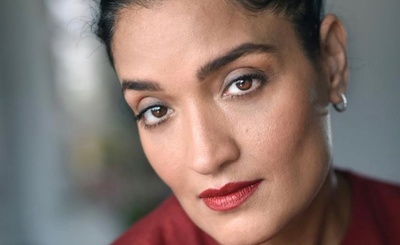
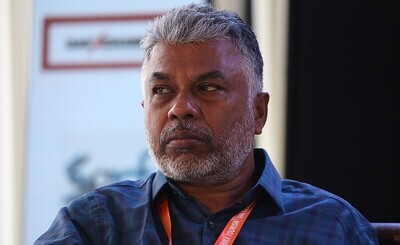
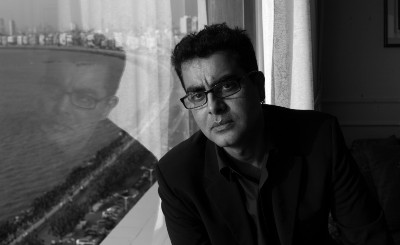
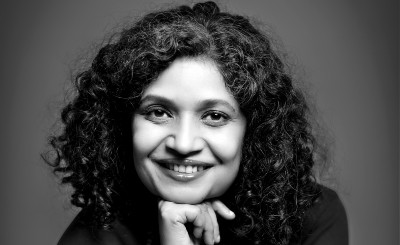
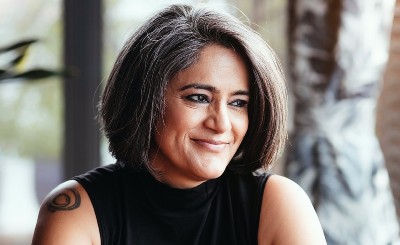
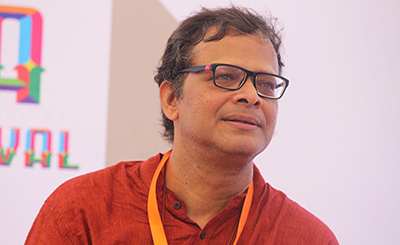
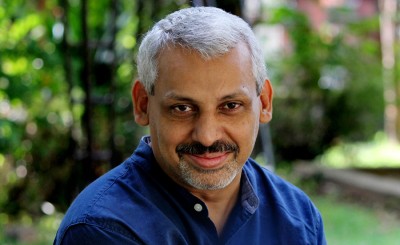
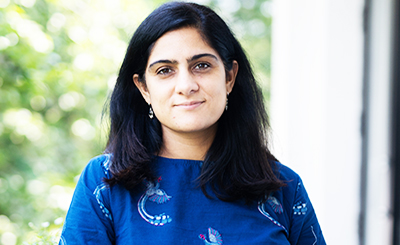
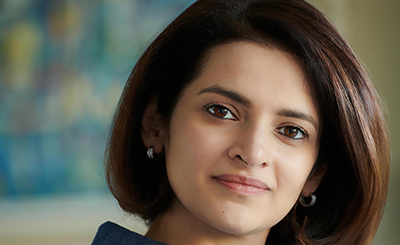

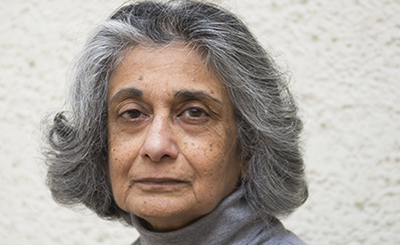


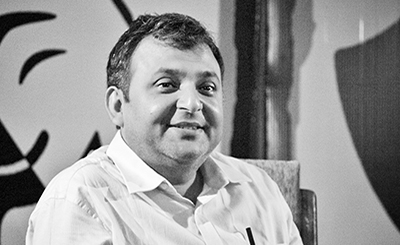
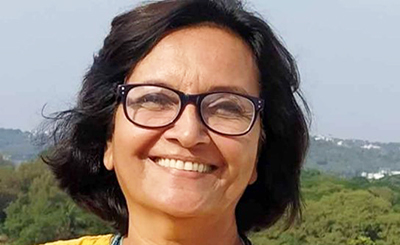
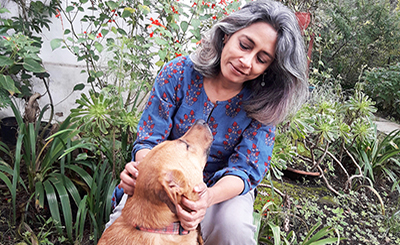
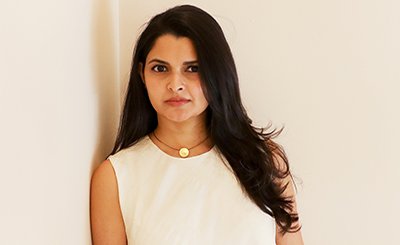
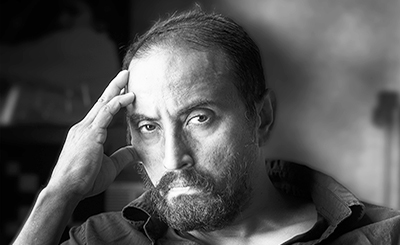
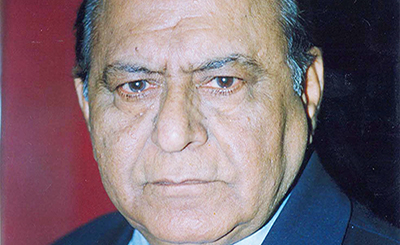
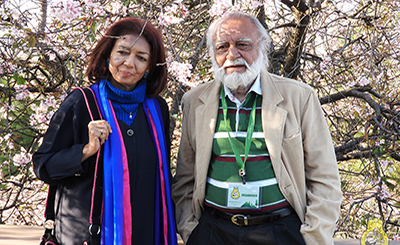

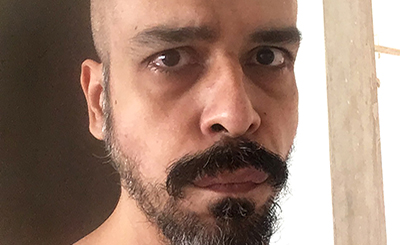
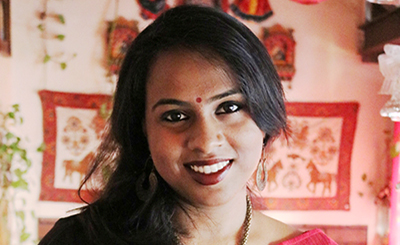
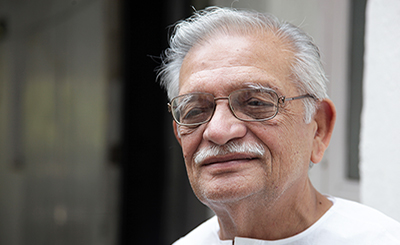
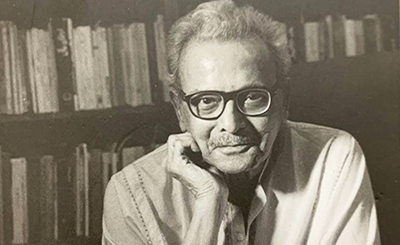
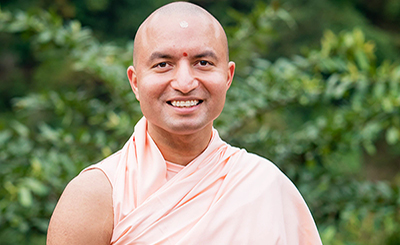
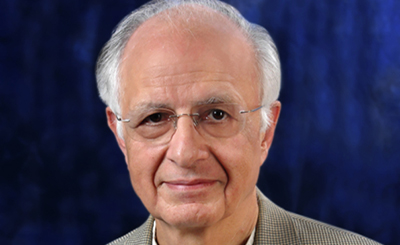
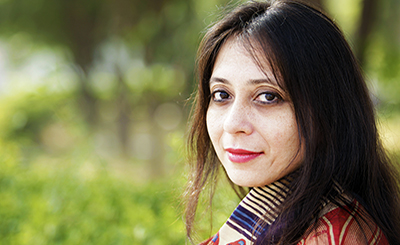
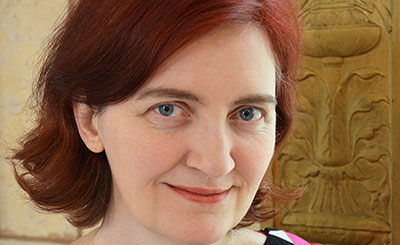
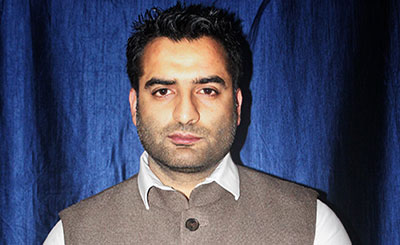
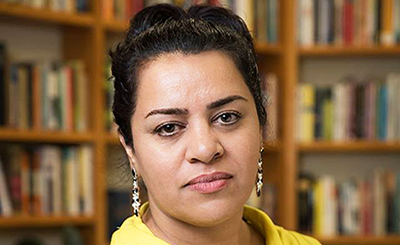
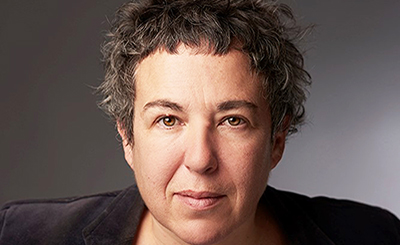
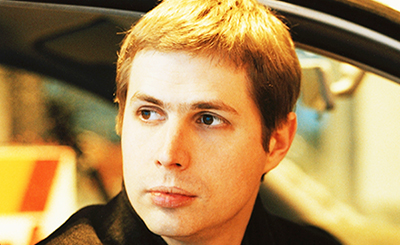
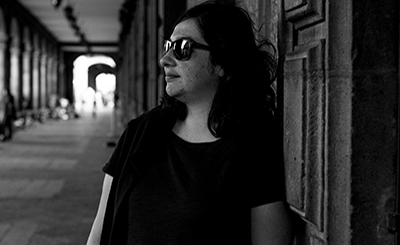

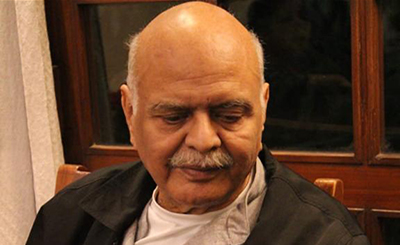
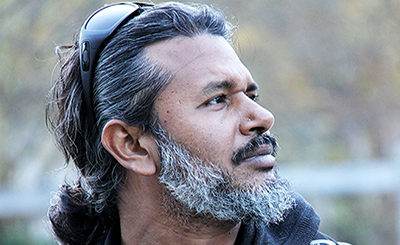
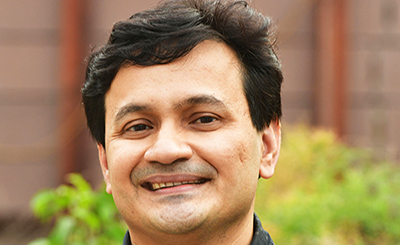
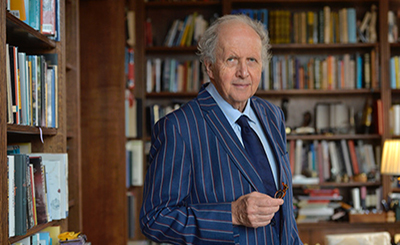
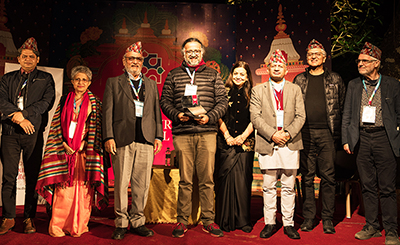
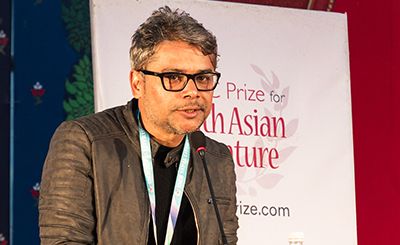
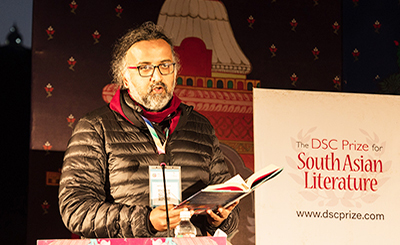
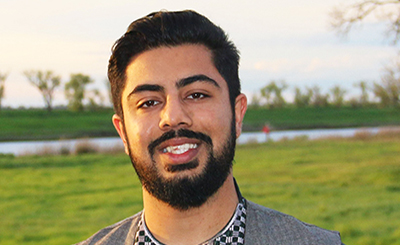
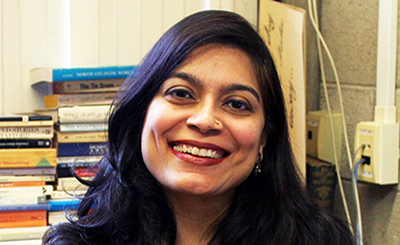
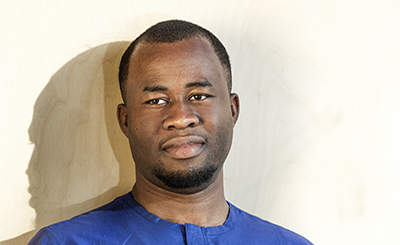
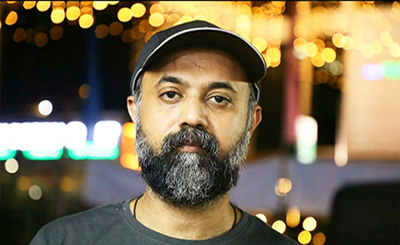


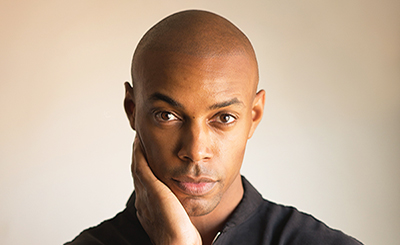
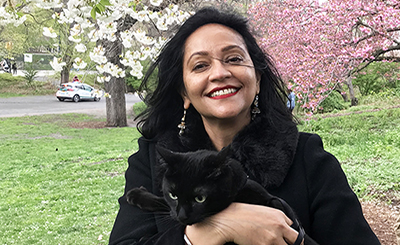
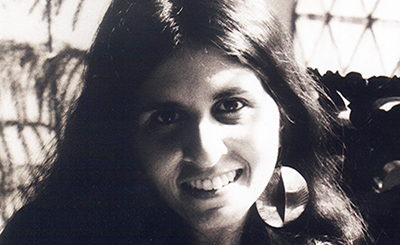
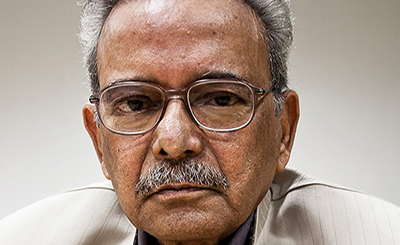
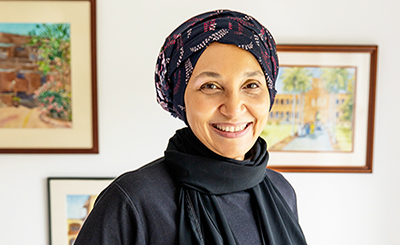
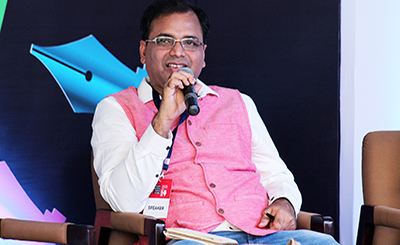
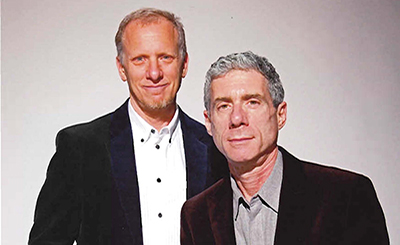

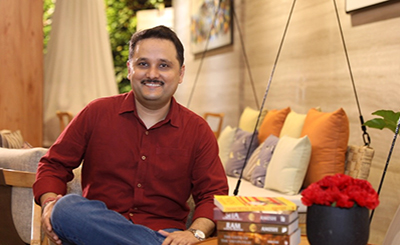
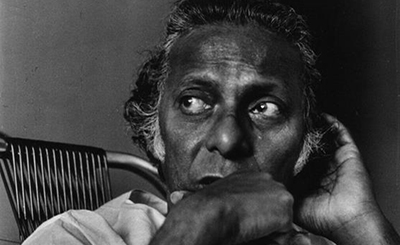
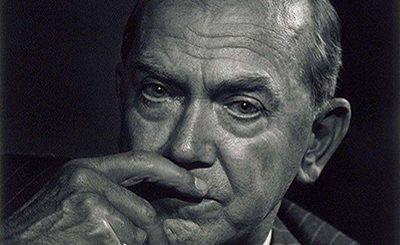
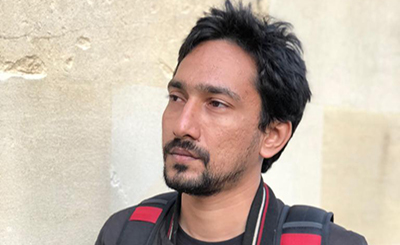
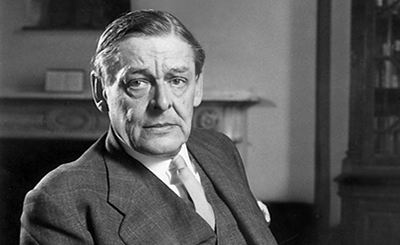
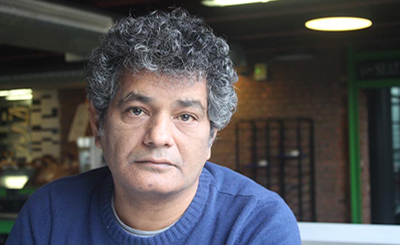
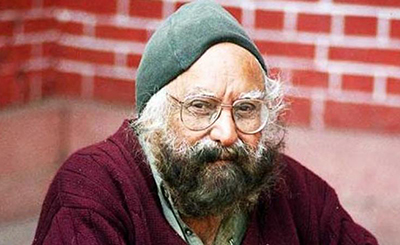
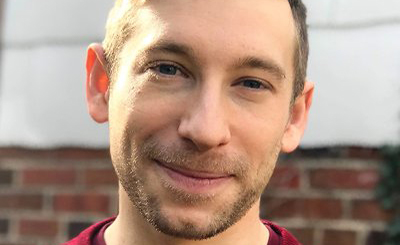
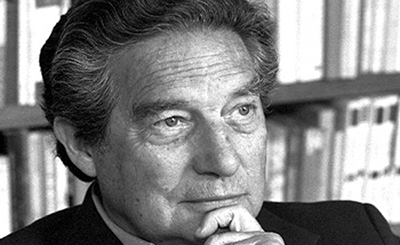
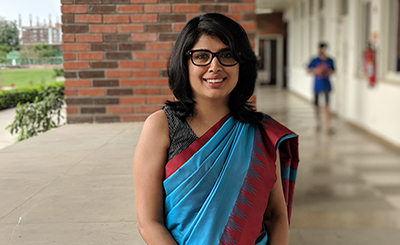
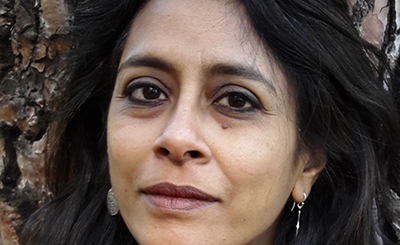
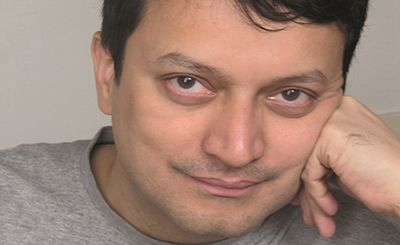
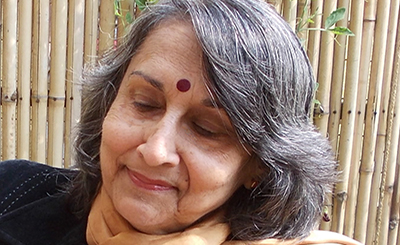

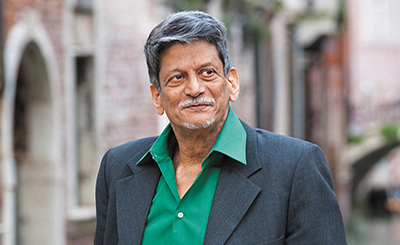

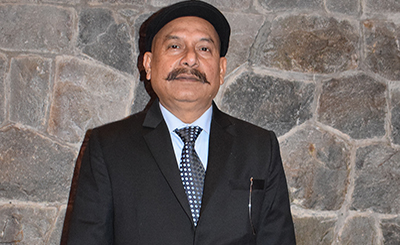
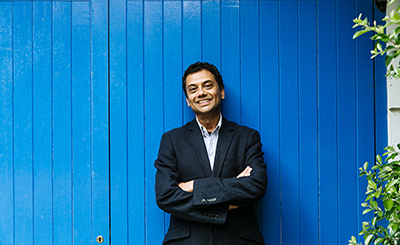
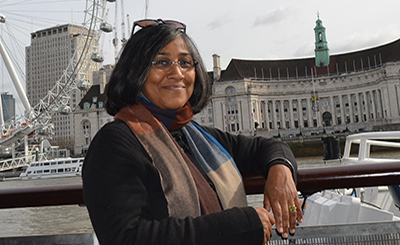
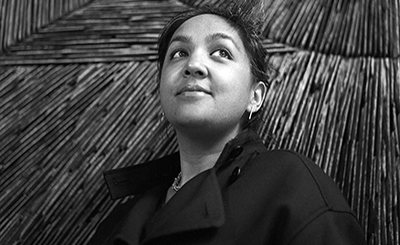
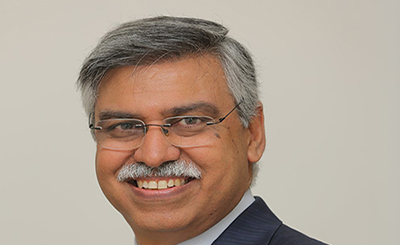
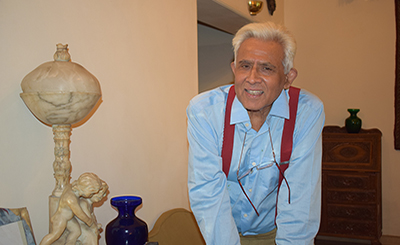
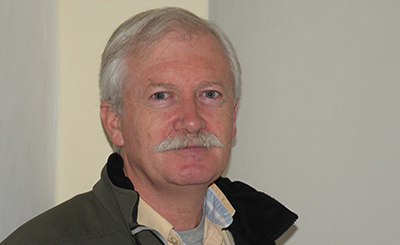
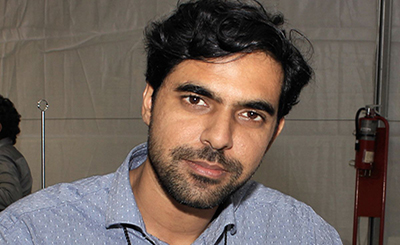
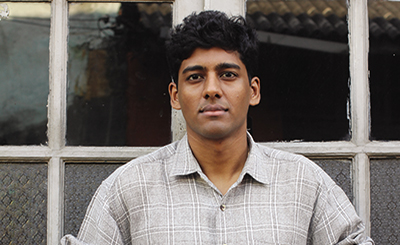
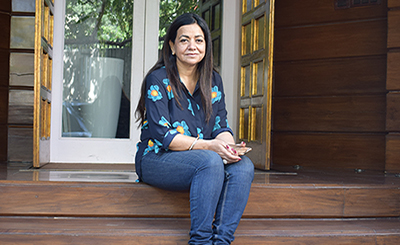
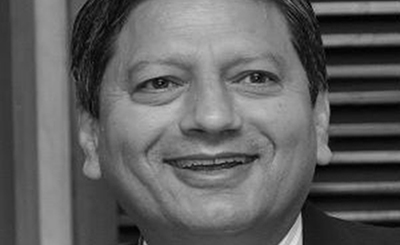
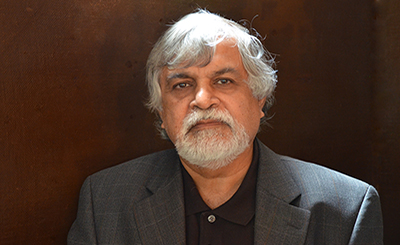
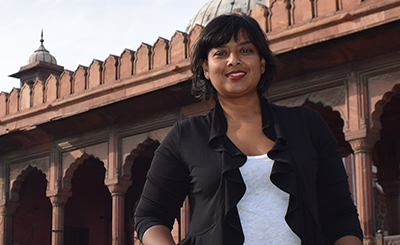
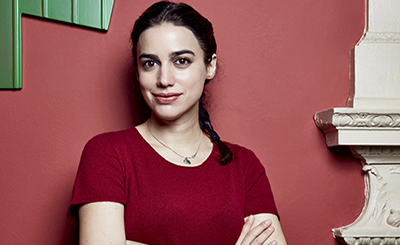
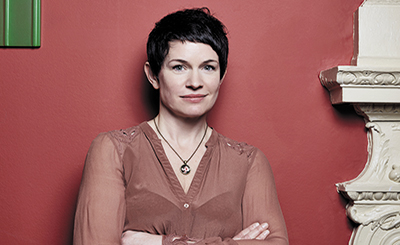
THUMBS.jpg)

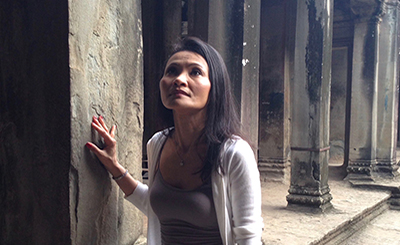
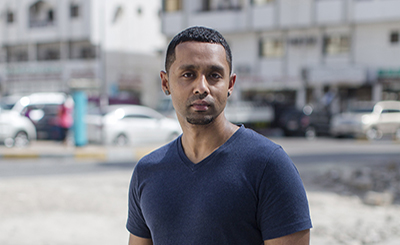
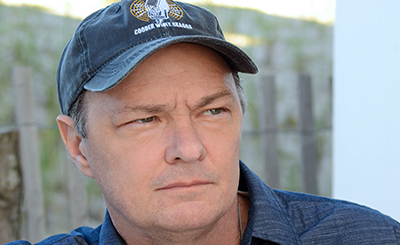
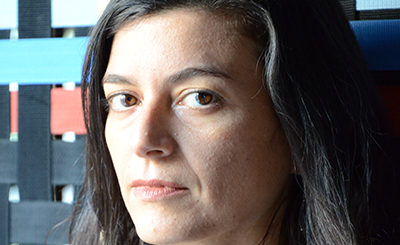
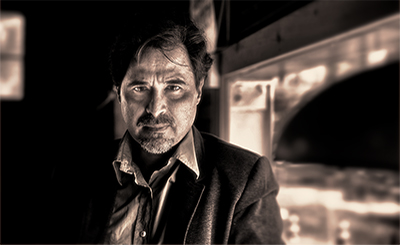
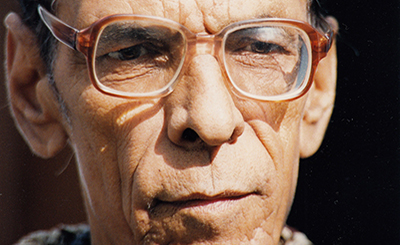
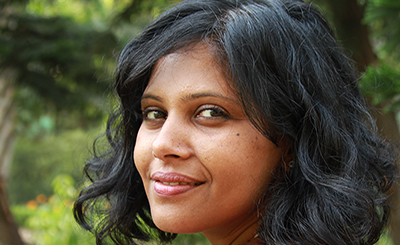
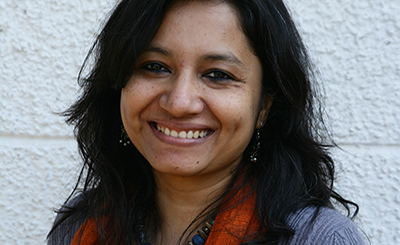
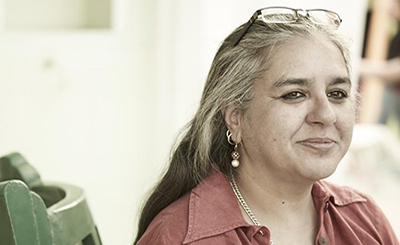
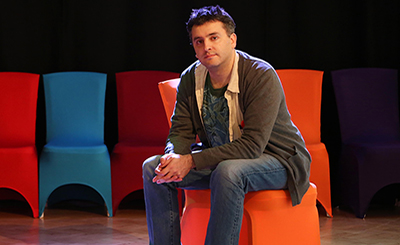

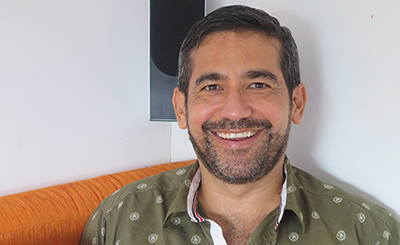
THUMBS.jpg)
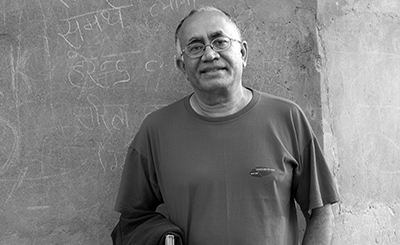
THUMB.jpg)
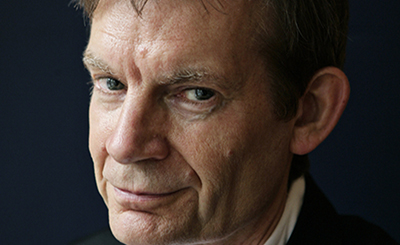
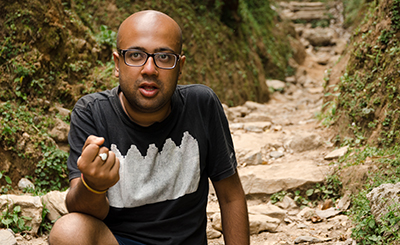
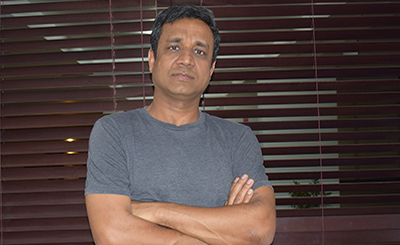
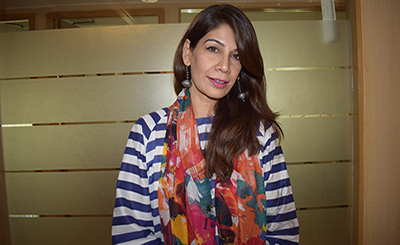
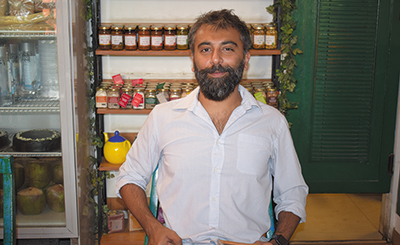
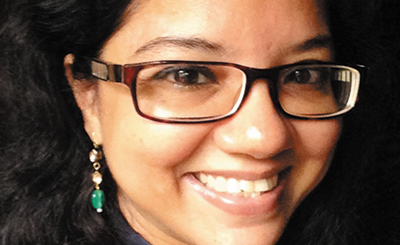
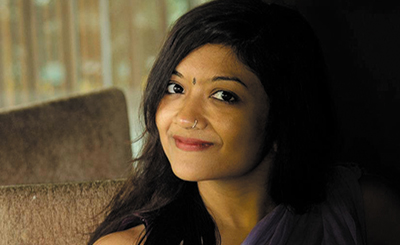
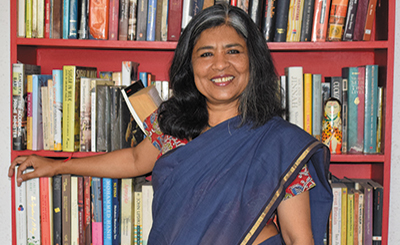
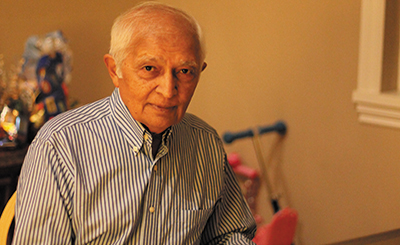

THUMB.jpg)
